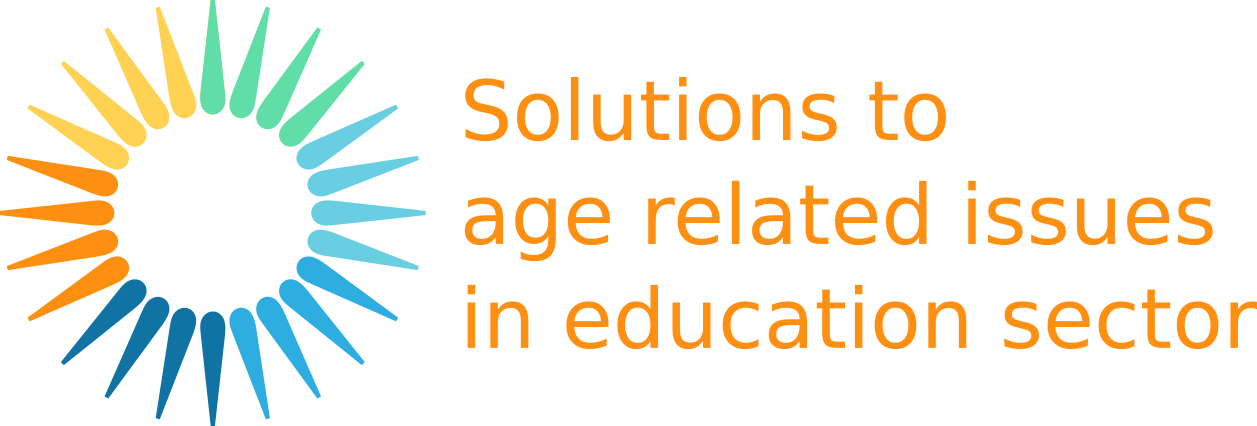Solaris
Solutions to Age Related Issues in Education Sector
2021-1-CZ01-KA220-VET-000033227

This project is aimed primarily at the organisational level in the education sector; it is intended to be a practical tool to assist those with responsibility for employment, such as school managers, policy makers and social partners, as well as teachers and trainers, (continuous professional development, or CPD, trainers in particular) to ensure that the school workforce ageing is managed successfully and that age does not become a barrier to employment.
From the point of view of educators, age management presents sets of actions for the needs of people of different ages (not just for the older employees) with the aim to prepare the educators for the moment when the school will have to employ a significantly larger rate of employees aged over 50 than it does today. This project addresses the school staff, VET teachers and trainers in particular. The CPD program designed in this project will target professional teaching staff and will reflect the current needs in the ageing school environment.
Project Objectives
The main objective of the project is to develop a set of practical tools for educators of all levels (especially VET providers) that relate to age management in the education sector. The set of tools consists of collections of best practice examples on solutions to age-related issues in schools, comparative analysis of the case studies and recommendations for the educators on the effective choice of age management measures. In addition, a curriculum for training of selected school staff in age related topics has been developed as well as a model introductory training program. The project results will be made available digitally to the public upon their completion.
Project Outputs
Collection of Interviews on Age Management in the Education Sector
This project result is the result of a survey investigating the best practices in age management in the education sector. The partners have amalgamated 25 examples of schools which have implemented successful age management practices in their institution. Access the interviews here.
Research Report
This research report delves into challenges related to age that teachers face in the educational sector and investigates strategies for age management to address these issues. Qualitative research was conducted, involving interviews with key stakeholders from six European countries, to explore perceptions of aging and age-related issues. The report underscores the benefits of age management measures, such as enhanced teaching quality, teacher well-being, student outcomes, and increased attractiveness of the teaching profession. However, it also recognizes the costs linked to implementing age management strategies and potential difficulties in motivating certain older teachers to adopt change. This result is now available – access the full report here.
Training Curriculum
The curriculum outlines the specifics for the training of all target groups involved: teachers/trainers, school managers/directors, education advisors and DVP trainers. The curriculum outlines contain important topics needed to develop and/or provide training for the selected target group on age management in schools. Access the curriculum here.
Introductory Training Program for School Staff
As the trainers’ needs develop, the knowledge and skills they require will also evolve. This is where CPD helps support teachers to sustain their professional life. This training program is built upon the results of the thorough analysis of the teaching staff needs related to age management in educational facilities. It provides the introductory lessons to the age-related issues occurring in the education sector and outline the directions in which these issues can and should be solved. Access the training program here.
Read the project newsletters here:
Project outputs will be available to the public as OER in March 2024.

Funded by the European Union. Views and opinions expressed are however those of the author(s) only and do not necessarily reflect those of the European Union or the European Education and Culture Executive Agency (EACEA). Neither the European Union nor EACEA can be held responsible for them.
